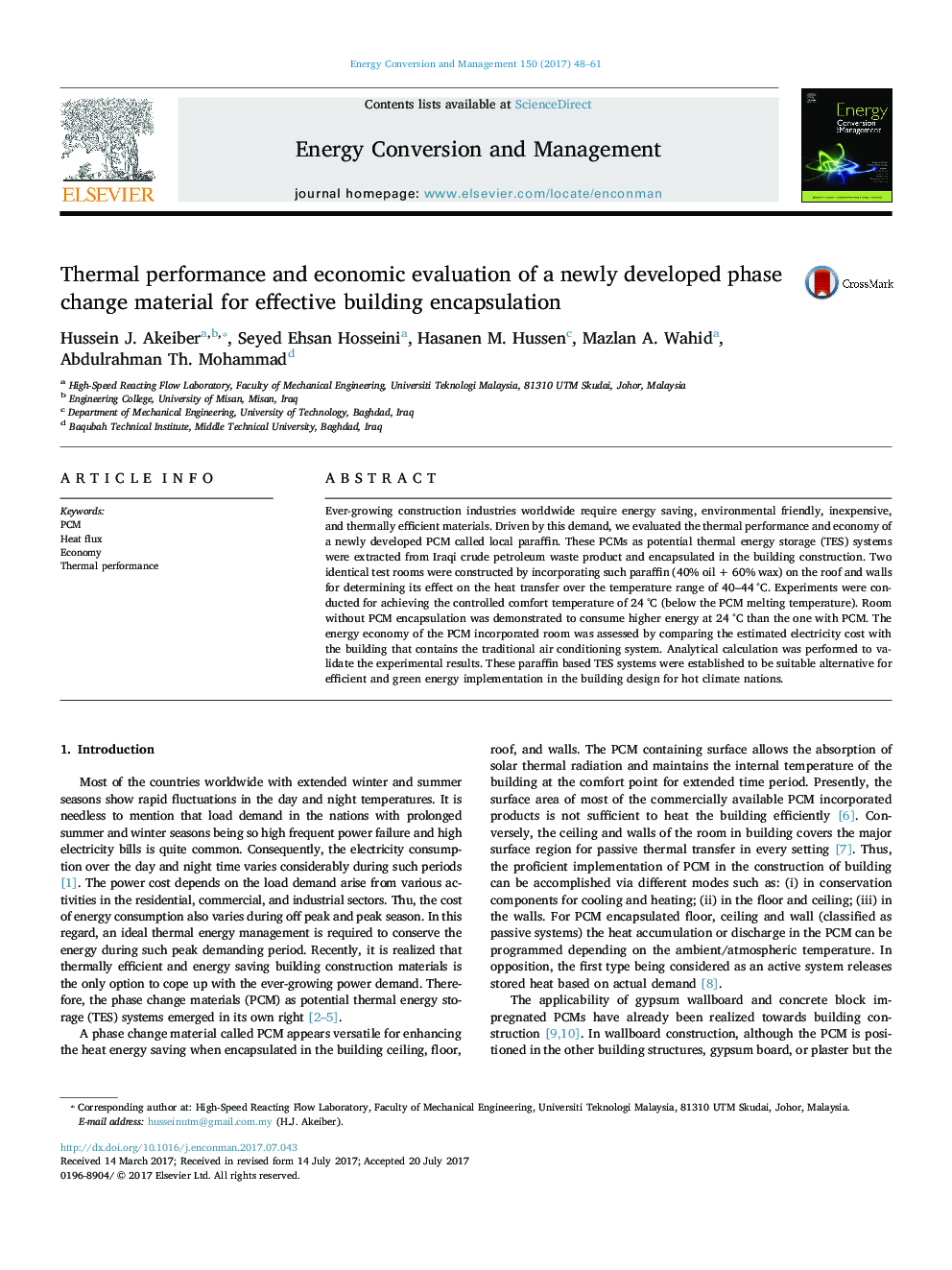| Article ID | Journal | Published Year | Pages | File Type |
|---|---|---|---|---|
| 5012246 | Energy Conversion and Management | 2017 | 14 Pages |
Abstract
Ever-growing construction industries worldwide require energy saving, environmental friendly, inexpensive, and thermally efficient materials. Driven by this demand, we evaluated the thermal performance and economy of a newly developed PCM called local paraffin. These PCMs as potential thermal energy storage (TES) systems were extracted from Iraqi crude petroleum waste product and encapsulated in the building construction. Two identical test rooms were constructed by incorporating such paraffin (40% oil + 60% wax) on the roof and walls for determining its effect on the heat transfer over the temperature range of 40-44 °C. Experiments were conducted for achieving the controlled comfort temperature of 24 °C (below the PCM melting temperature). Room without PCM encapsulation was demonstrated to consume higher energy at 24 °C than the one with PCM. The energy economy of the PCM incorporated room was assessed by comparing the estimated electricity cost with the building that contains the traditional air conditioning system. Analytical calculation was performed to validate the experimental results. These paraffin based TES systems were established to be suitable alternative for efficient and green energy implementation in the building design for hot climate nations.
Related Topics
Physical Sciences and Engineering
Energy
Energy (General)
Authors
Hussein J. Akeiber, Seyed Ehsan Hosseini, Hasanen M. Hussen, Mazlan A. Wahid, Abdulrahman Th. Mohammad,
